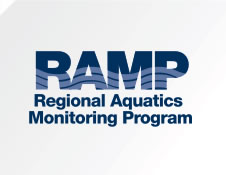RAMP responds to a request for comment on Dr. David Schindler’s press conference regarding the high incidence of fish abnormalities
Sep 16 2010The Regional Aquatics Monitoring Program (RAMP) was asked to respond Dr. Schindler’s September 16, 2010 press release regarding the incidence of fish abnormalities in the lower Athabasca River, Athabasca Delta and Lake Athabasca. At this time, we have not reviewed the details of the press conference, and can only speak to the results of the RAMP monitoring program.
Although RAMP does not undertake fish monitoring in Lake Athabasca or the Delta, RAMP does evaluate fish health in the Athabasca River in the vicinity of oil sands developments and provides the following information specific to the lower Athabasca River.
Since 1997, RAMP has conducted seasonal fish inventories in the Athabasca River adjacent to oil sands developments. Historically, inventories were conducted in the spring and fall; however, over the last two years, a summer inventory has also been included. A key element of these inventories is an external assessment of fish for signs of abnormalities and disease.
In 2009, there were 3,207 fish collected during the three inventories. Of those fish, 68 fish (or 2.1% of the total catch) exhibited some form of external abnormality, including the presence of parasites, growths, or body deformities. A higher percentage of fish showed other minor injuries such as old wounds and scars, fin erosion or skin aberrations. The 2009 results are similar to those observed in previous years and are reported in the RAMP Annual Technical Reports. These rates are also similar to what has been documented in fish captured from the Clearwater River located upstream of the oil sands region.
In 2009, RAMP replaced its internal Fish Health Program with a community-based monitoring program managed by an independent organization. This program encourages community members to send any fish that look abnormal to the Canadian Cooperative Wildlife Health Centre (CCWHC) at the University of Saskatchewan (www.ccwhc.ca). This pathology lab provides an independent assessment of any abnormal fish caught, in an effort to understand the possible cause of the observed abnormality or health condition.
On behalf of RAMP, I welcome any additional research and monitoring in the oil sands region, to complement the extensive and credible work being done by RAMP, Alberta Environment, and individual RAMP members and look forward to reviewing Dr. Schindler’s data if it becomes available.
Fred Kuzmic, RAMP Spokesperson
For more information, please visit our website: www.ramp-alberta.org or contact communications@ramp-alberta.org.








